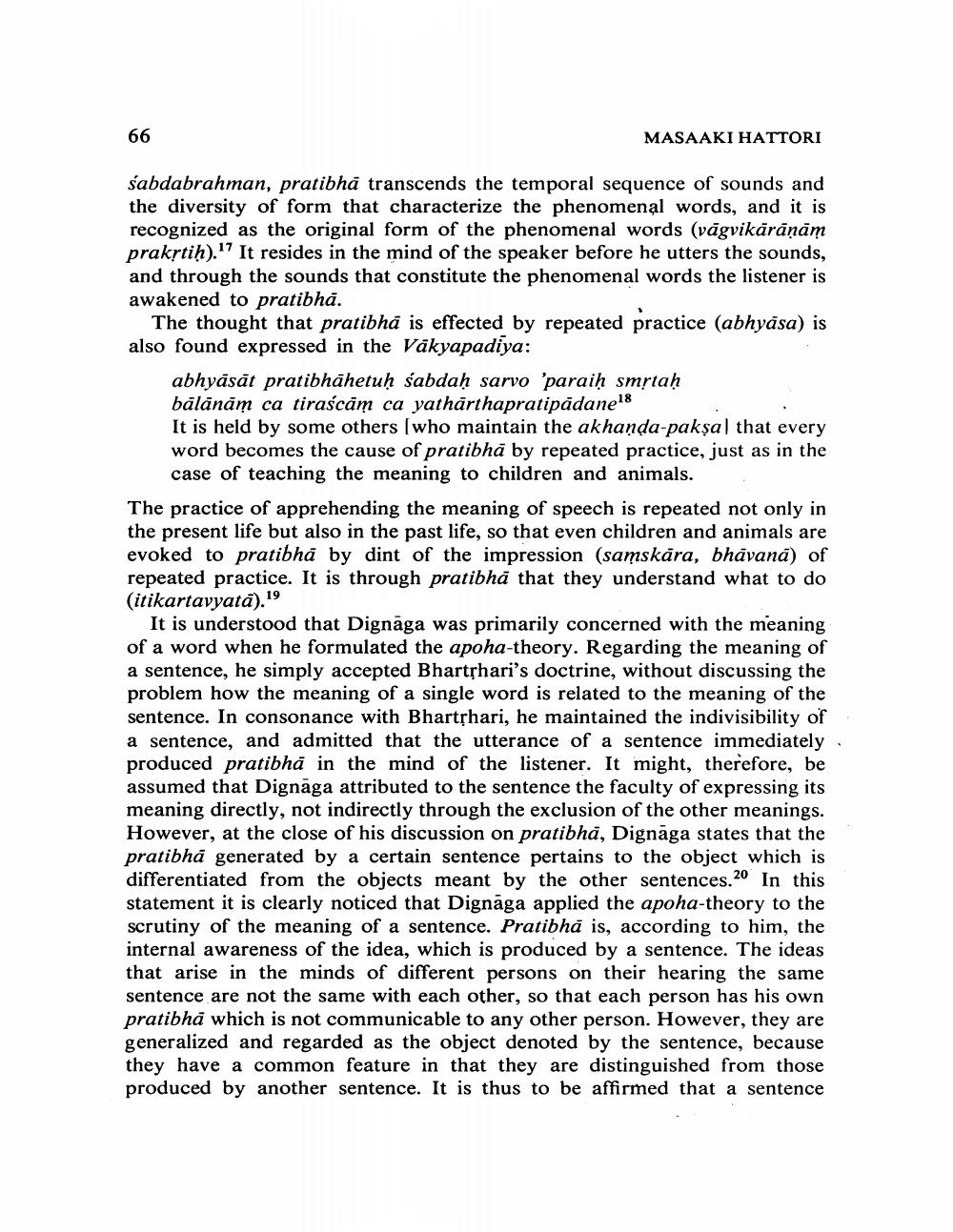Book Title: Apoha And Pratibha Author(s): Masakki Hattori Publisher: Masakki Hattori View full book textPage 6
________________ 66 MASAAKI HATTORI sabdabrahman, pratibha transcends the temporal sequence of sounds and the diversity of form that characterize the phenomenal words, and it is recognized as the original form of the phenomenal words (vāgvikārāņām prakrtih)." It resides in the mind of the speaker before he utters the sounds, and through the sounds that constitute the phenomenal words the listener is awakened to pratibha. The thought that pratibha is effected by repeated practice (abhyasa) is also found expressed in the Väkyapadiya: abhyāsāt pratibhāhetuḥ sabdaḥ sarvo 'paraiḥ smrtaḥ bālānām ca tirascām ca yathärthapratipadanel8 It is held by some others (who maintain the akhanda-pakşal that every word becomes the cause of pratibhā by repeated practice, just as in the case of teaching the meaning to children and animals. The practice of apprehending the meaning of speech is repeated not only in the present life but also in the past life, so that even children and animals are evoked to pratibha by dint of the impression (saņskāra, bhāvanā) of repeated practice. It is through pratibh, that they understand what to do (itikartavyata).19 It is understood that Dignāga was primarily concerned with the meaning of a word when he formulated the apoha-theory. Regarding the meaning of a sentence, he simply accepted Bhartshari's doctrine, without discussing the problem how the meaning of a single word is related to the meaning of the sentence. In consonance with Bhartshari, he maintained the indivisibility of a sentence, and admitted that the utterance of a sentence immediately produced pratibha in the mind of the listener. It might, therefore, be assumed that Dignāga attributed to the sentence the faculty of expressing its meaning directly, not indirectly through the exclusion of the other meanings. However, at the close of his discussion on pratibha, Dignāga states that the pratibha generated by a certain sentence pertains to the object which is differentiated from the objects meant by the other sentences.20 In this statement it is clearly noticed that Dignāga applied the apoha-theory to the scrutiny of the meaning of a sentence. Pratibha is, according to him, the internal awareness of the idea, which is produced by a sentence. The ideas that arise in the minds of different persons on their hearing the same sentence are not the same with each other, so that each person has his own pratibhā which is not communicable to any other person. However, they are generalized and regarded as the object denoted by the sentence, because they have a common feature in that they are distinguished from those produced by another sentence. It is thus to be affirmed that a sentencePage Navigation
1 ... 4 5 6 7 8 9 10 11 12 13
